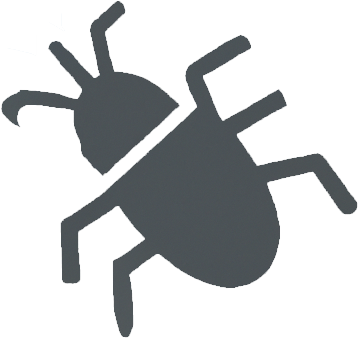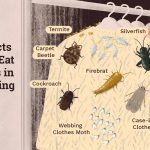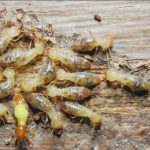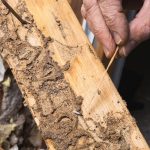Termites are one of the most destructive pests that can be found in homes. As temperatures start to drop in the winter months, many homeowners wonder if termites remain active or take a break until the warmer weather arrives. In this article, we’ll look at what happens to termites in cold weather, and how homeowners can protect their homes from termite infestations during the winter.
What are Termites?

- Termites are small, soft-bodied insects that live in colonies.
- They feed on wood and other plant material, and can cause significant damage to buildings and other structures.
- Termites are social insects that live in large colonies consisting of workers, soldiers, and reproductive individuals.
- Termites have three castes: workers, soldiers and reproductives. The workers gather food, build and repair the nest, and take care of the young.
- Soldiers defend the colony from predators and parasites.
- Reproductives are the reproductive members of the colony and are responsible for producing the next generation of termites.
Characteristics of Termites

- Social insects
- Live in large colonies, with a caste system
- Feed on cellulose material
- Have a soft, white body
- Have long antennae and six legs
- Have large mandibles used to chew wood
- Have a protective exoskeleton
Life Cycle of Termites

Termites are social insects, living in large colonies. A typical colony consists of a king and a queen, their offspring and workers. The colony is divided into three castes: a reproductive caste, a soldier caste, and a worker caste. The life cycle of a termite colony starts with a mating flight, in which swarms of winged males and females emerge from their colonies in search of a mate. After mating, the male and female pair form a new colony.
The queen and king are responsible for producing offspring. They produce eggs, which hatch into larvae, and then develop into nymphs before becoming adults. The nymphs become part of the worker caste, and are responsible for gathering food and caring for the young. The soldier caste is responsible for protecting the colony from predators.
The life cycle of a termite colony varies, depending on the species. Some species may complete their life cycle in as little as one year, while others may take up to several years to reach maturity.
In terms of activity during winter, it depends on the species and the region. Some species may be active during winter, while others may enter a state of dormancy. In colder climates, termites may enter into a state of hibernation, and become active again when the weather warms up.
Are Termites Active in Winter?

Termites are active throughout the year, regardless of the season. During the winter, termites will slow down their activity due to the cooler temperatures, but will still be active. They may be less active than in the warmer months, but they will still be present and foraging for food.
| Season | Termite Activity |
|---|---|
| Summer | High |
| Spring & Fall | Moderate |
| Winter | Low |
Termites are considered cold-blooded, meaning they are unable to regulate their own body temperatures. As the temperature drops, they become less active and more sluggish. They will, however, still be present and looking for food sources. In the winter, termites will usually be found near sources of warmth such as attics and basements, or near furnaces and water heaters.
It is important to note that termites will not die in the winter, as they will become dormant until the temperature rises again. This is why it is important to be vigilant in identifying and removing termite infestations throughout the year, since they may still be active in the winter.
Do Termites Die in Winter?

- Most termites do not die in winter, but are less active and may slow down their growth.
- The cold weather can be lethal to some termite species, especially those that live in warmer climates.
- Other species of termites survive the winter by burrowing deep into the soil, where the temperature is more constant.
- Some species of termites also produce a waxy substance which helps to insulate and protect them from the cold temperatures.
- The queen and egg-laying females of some species of termites may be able to survive the winter by burrowing into the ground and producing chemicals to keep them warm.
Termites are generally resilient and can survive cold temperatures by adapting their behaviors and physiology. However, the cold can still be lethal to some species of termites, so it is important to know what type of termite you are dealing with and how they may respond to the cold.
Do Termites Hibernate?

Termites do not hibernate like other animals. They remain active throughout the cold winter months and can cause serious damage to properties. Termites are able to remain active in winter because they live in large colonies where temperatures are regulated by the collective body heat of the colony. This means that even in winter, when temperatures outside are cold, temperatures inside the termite colony can remain warm enough to keep the termites active. Termites are also able to survive in colder temperatures because they can create nests inside of the buildings they infest. These nests provide an insulated environment that helps protect the termites from cold winter temperatures.
Can Termites Live in Cold Weather?

The answer is no. Termites are cold-blooded insects, meaning that their body temperature changes with their environment. Therefore, they cannot survive in cold temperatures. They need a warm climate to survive, as their bodies cannot produce enough heat to regulate their body temperature in colder climates.
| Temperature | Effect on Termites |
|---|---|
| Below 0°C (32°F) | Death of termites |
| 10-25°C (50-77°F) | Optimal temperature for termites to thrive |
| Above 30°C (86°F) | Death of termites |
Termites need temperatures between 10-25°C (50-77°F) to thrive. Below zero degrees Celsius (32°F), the cold will kill the termites. Similarly, temperatures above 30°C (86°F) are too hot for their bodies to handle.
In colder climates, termites will enter a state of dormancy, where they remain inactive and do not consume food. In order to survive, they will seek out warmer areas such as the soil or woodpiles. Once temperatures increase and the termites are able to enter a state of activity, they will begin to feed and reproduce.
In conclusion, termites cannot survive in cold weather. They need a warm environment to survive and thrive. In colder climates, they enter a state of dormancy until temperatures become more suitable for their survival.
Can Termites Survive Winter?

Termites can survive winter by entering dormancy and hibernation. Some species of termite will overwinter in the soil, while others will enter into the wood of a structure in order to stay warm. In addition, some species of termite will produce a special antifreeze-like substance that helps them survive cold temperatures. But even with these types of adaptations, termites are not as active in winter months as they are in other times of the year. Termites will typically remain dormant until temperatures warm up and spring arrives.
Do Termites Like Cold or Hot?

Termites are not active in cold temperatures and prefer hot climates. They are unable to survive in temperatures below freezing, so they hibernate during the winter months. During the winter, the majority of termite activity ceases, as a result of the cooler temperatures and shorter days. Therefore, they are inactive during the winter, and they don’t cause any damage to structures during this time. Most termites are active in temperatures between 70 and 90 degrees Fahrenheit, and they thrive in hot, humid environments. Termites don’t like to be exposed to the cold, so they are usually found in areas that are insulated and protected from cold temperatures.
What Temperature Do Termites Die?
Termites are cold-blooded creatures and become inactive when temperatures drop below 50°F (10°C). They can survive for short periods at temperatures as low as 14°F (-10°C), but will die if exposed to freezing temperatures for an extended period. In climates where temperatures drop below freezing, termites die when the temperature reaches 25°F (-4°C).
Do Termites Go Dormant?
- Termites are cold-blooded and do not hibernate in winter.
- They do not go dormant, but their activity does slow down in colder climates.
- In cold weather, termites will move deeper into the ground to escape the cold temperatures.
- To avoid the cold, they will also move away from external sources of cold, such as open windows or air conditioning vents.
- In warmer climates, termite activity may continue throughout the winter months.
- Termites can also become dormant in very dry, hot climates.
- The lack of moisture and food during these dry periods can cause the termites to become inactive until the weather improves.
Frequently Asked Questions
Are Termites Active in Winter?
Termites are generally active year-round, but their activity is significantly reduced during the cold winter months. As temperatures drop, termites will slow down their activity and become less visible. However, some species of termites will remain active throughout the winter, and will seek out warm and moist environments to survive. In warmer climates, such as in the southern United States, termite activity may remain constant throughout the year. In colder climates, like in the northern states, termite activity will be minimal during the winter months.
Do Termites Die in Winter?
No, termites are not killed by cold winter temperatures and in some areas they may remain active throughout the winter season. The vast majority of termite species are tropical and temperate, which means they can survive in cooler climates. However, they are inactive in extremely cold temperatures and will seek shelter indoors or below ground to keep warm and survive.
Do Termites Hibernate?
Termites are active year-round, and do not hibernate during the winter months. They remain active even in cold weather, as they can dig tunnels and build mud tubes that keep them warm. The most common species of termites in the United States are subterranean termites, and they survive the harsh winter months by living in the soil, where temperatures remain relatively warm. Even if the surface of the ground is covered in snow, the subterranean termites will still be active.
Can Termites Live in Cold Weather?
Termites are cold-blooded and cannot survive in temperatures below 13°C (55°F). They are not adapted to survive in cold climates and cannot survive in freezing temperatures. So, termites cannot survive in cold weather and are inactive during winter months. To stay warm, they burrow deep into the soil and build mud tubes to stay warm and humid.
Can Termites Survive Winter?
Termites can survive in cold climates by sheltering beneath the ground or in woodpiles and other sheltered areas. During the winter, termites may go dormant, but they can still survive in cold temperatures. In warmer climates, termites can remain active, even in winter. To protect your home from termites, it is important to take preventative measures year-round, regardless of the season.
Conclusion
Termites are active throughout the year, even in cold weather. They may become less active in the winter, but this does not mean they will stop eating your wood and other materials. If you think you have a termite infestation, it is important to take action right away to prevent further damage. Professional pest control services can help you identify and eliminate termites in your home or business.







